The industrial emergency service
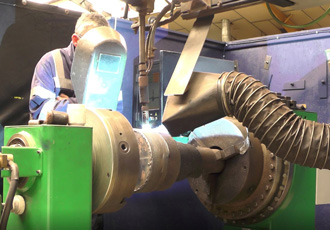
To find out more on what his company is about, what the plans are regarding Industry 4.0 and his vision for the association, Steve Ashman of Solutions in IT and Chair of the AEMT (The Association of Electrical and Mechanical Trades) Marketing Committee interviews Director Shaun Sutton at Central Group.
Background and Capability
Central was born out of the need to service the manufacturing sector that existed in Liverpool in the 1970’s when, as Shaun explains, there was far more industry than there is today. Back then, steel, marine, paper and chemical manufacturing dominated the industrial skyline and as with all areas of the UK, things have changed and the company has diversified and transformed to fill a new niche of trade requirement.
The origins of Central begin with Shaun’s father, Mike Sutton who was a time-served armature winder in a local business in the Dingle (Liverpool) before departing for his national service in the Merchant Navy as an electrical engineer. After seven years at sea, Mike returned to Liverpool and formed partnerships before setting up his own company, Central in 1972 in the city centre, right opposite the Albert Dock, where the Police Headquarters are today.
Shaun didn’t join the business until 1991, but as he explains growing up: “We were always around it. It was like living above a bakery, you’d meet the customers, you’d know the process, you’d know all of the people and suppliers and although I’ve never wound a motor, I’ve done pretty much all of the jobs around the place at one time or another.”
As Shaun explains he’d left school with little interest in the electro-mechanical industry and chose a route through university, majoring on Spanish and Portuguese, because working overseas had its appeal.
Business and dealing with customers had always played a part in his youth, working in C&A as a 16-year-old, some telemarketing work, and in bars and restaurants. As most of us come to realise, “You don’t really know who you are until you get a bit older.” In 1991 Shaun took the offer to work in the sales team at Central. At that time it was a different place to what it is now, “We’d repair oily stuff, motors, generators, gearboxes, pumps, a lot of work was steel industry heavy manufacturing process.”
The travelling and responsibility began in earnest looking after accounts in the M6 corridor from Cumbria down to Staffordshire and into Wales; a large patch of varied industry. Shaun recalls developing strong relationships throughout the region, many of which remain major customers to this day. Many of their customers were using old technology and control systems which were difficult to support, presenting Central with an opportunity to offer new solutions based on energy and efficiency saving, at the time believing that was the normal thing to do. “We didn’t put the product first, we offered a solution which we discovered later was not the accepted norm.”
Their successes can be attributed to two factors: technical expertise with customer service & support. This was demonstrated back in 1992 when Central upgraded 18 motor and drive systems on a production line using products manufactured by ABB. Recognising Central’s expertise, ABB appointed the company as a technical distributor in the North West and so began a 25 year mutually beneficial working relationship.
Service for Central Group is a 24-hour 365 affair; as Shaun and I spoke, the service continues. Gary Hickey, the Central Group Service Manager, was on a vessel floating off the coast of the UK providing onsite technical expertise and support. By making an adjustment to a thruster, Gary was helping the client to keep the vessel under control.
Providing a free energy and efficiency survey, is an approach by Central that appeals to the modern manufacturing business who have smart targets to increase efficiency, reduce costs, and keep all their plant up and running without downtime. Aiming towards a 2 year return on investment period, the survey is generally done during a half day site visit, where a surveyor will pick out a selection of varying applications to put through Central’s desktop proposal system. The facts are substantiated by replacing the existing unit for a trial period and presenting the measured results. With no cost incurred or contract committed the client has an open opportunity to look at the impact that uncontrolled equipment and breakdowns is having on the business. Invariably they are won over.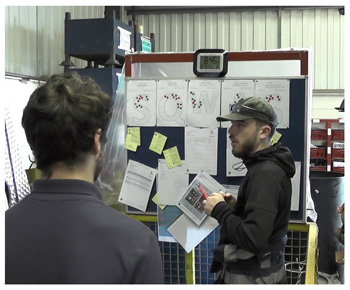
Making recommendations is all about the application, which vary greatly from client to client. If you’ve ever ridden the Master Blaster at Alton Towers, an epic water ride which entertains over a 1,000 visitors each day, it’s an engineering masterpiece that relies on 60 drives supplied, installed and maintained by the Central Group.
A milestone in the history of the company came in 2002. Mike Sutton, the founder who had nurtured Central since its inception in ’72 introduced the idea of his retirement, leaving Shaun, with brother Tim, to form a partnership and take the business forward. Shaun questioned his new role, “What is my purpose as a business leader? For me I just want to create proper career opportunities for people. I think it’s great to see people come to work with a sense of purpose. I will have felt my legacy is leaving it in a better place.”
The Digital Motor and Industry 4.0
There is a lot of talk about change in the industry and few can deny the constant influx of new technology that since the early induction of computerisation in the ‘70’s has permeated and enriched almost every aspect of our lives. The emergence of VSDs – Variable Speed Drives - amongst other devices continues to have a massive impact on the amount of energy used with a return on investment that few would consider long term. Reducing your carbon footprint is now a measurable and achievable goal all forward-thinking purchasing departments will have researched and adopted.
So, what’s new? Where does technology take us next?
The Central Group are gearing up for the next wave of digitalisation. Shaun explains how the reactive world of the repair and service industry will begin to offer a little more than a fast turnaround on damaged items. The conventional normality of a relationship with a motor repair centre is the minimisation of downtime and quality repairs that bring equipment back to their manufactured standard to ensure a long running life. There is no doubt that technology, testing equipment and modern rewinding techniques have all attributed to a service that is credibly achieving consistent high results, but the future may turn this all around.
What if clients were billed for uptime, not down-time
One of the first companies into the world of motor digitalisation is Siemens. They’ve developed equipment that talks to the Cloud while it’s still in operation, recording information on the health of not only the motor, but the complete drivetrain. “We began as a management team to explore the opportunities that this sort of technology can offer and frankly, we got excited about the future. Not long afterwards the partnership with Siemens was formed.” There is a pride that Shaun evokes when discussing the way decisions are made, as I would learn to appreciate throughout the day when employees at all levels are empowered to explore new methods and have their say, far more is achieved.
“We see the future as offering a company more productivity based on the analysis of information and being able to actively intervene before things start to fail.” Shaun is under no illusion, machinery will always surprise you and breakdowns will still need to be attended to, but Central will be holding the aces in terms of what is happening on site. Until now, every customer site and every piece of machinery being watched 24 hours a day, would have been a pipedream, but the digital drivetrain is making it all possible.
At the moment, engineering apprentices have a predefined route of electrical and mechanical training often with added specialisms depending on the needs of the business and applicable abilities. Shaun can see analytical training proving to be a necessity in the future, after all having recorded every bit of data, the real challenge is making use of it. By admission, it’s going to be a slow process finding their feet with the massive potential it brings, but the technology has been implemented at key sites and some success with those trials is already being identified.
SQWASHE, Continuous Improvement and Quality Output
Conventional management training would like you to think that building a hierarchy of experience and successful people, whose sole aim is to drive the vision of the business through the ranks, is the only tried and tested method of growth. At Central Group something else is happening. In my first exposure to their control system nicknamed SQWASHE (an acronym used to evaluate Service, Quality, Wellbeing, Accounts, Health & Safety) I saw an apprentice in charge. At the same time for 10 minutes each morning the team of workshop engineers, regardless of age or experience, take it in turns to chair a stand up discussion and review progress of the initiatives in their part of the business.
The SQWASHE control system instigates change, and Shaun reveals why it’s proving so important. “SQWASHE is the means by which we continually improve the business, it’s an ethos, a state of mind. As a business you either accept the status quo and you think it’s always been done this way and it works well for you, or you accept the fact that in a constantly evolving, changing world you need to continuously adapt.”
What Central is trying to do is turn the leadership triangle upside down and try and get close engagement with everybody at every level in the business and get their input into how they change things. As we know the management team have set goals and financial targets for each diversification and a business plan which says what they want to achieve. SQWASHE doesn’t restrict how the work is done, provided it follows a consistent methodology. This gives a continuity of process that everybody can relate to. Employees can see the changes working and because it works, it quickly becomes the norm.
Later that morning I joined the managers’ SQWASHE meeting. Liam Brown, Operational Support Manager, told me; “If we have an initiative, an idea, just a simple idea of how to make something better, it gets brought up and kicked around, and it won’t go anywhere until it’s put to bed, or resolved, or actioned. So, everything is visible. For instance, if we have a problem with a failed unit, potential warranty claim, a safety issue, or observation it comes in here.”
SQWASHE sits alongside conventional quality and safety standards. Central are an ISO 9001 certified company, and working towards OSAS 18001, the safety and environmental standard.
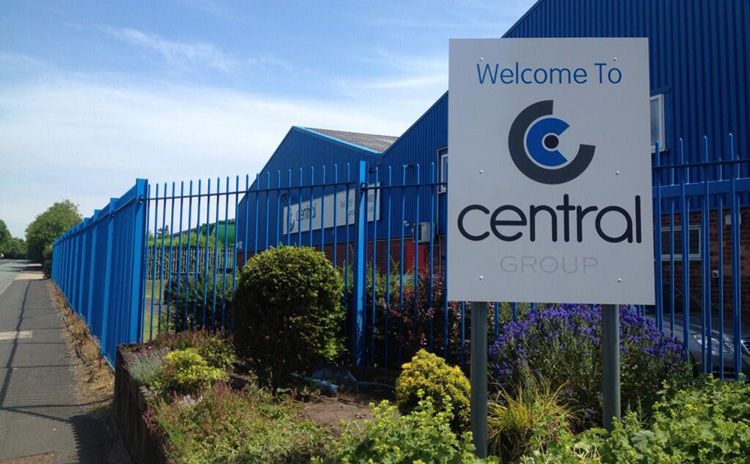
Involvement in the AEMT
Shaun Sutton joined the AEMT Council in 2016 and sits on many of its committees. Thinking about what he can add to the association. Central have learned a lot of new techniques from the Manufacturers Alliance, a leadership development group in the North West giving floor space to similar companies to learn from each other. Shaun explains how this can be attributed to the AEMT, “it isn’t about empire building or protecting what you’ve done. We are all trying to collaborate, share experience, help each other to problem solve, discuss issues around handling people and safety, all topics that underpin the quality of our work.”
Can much of this collaboration and learning be developed in the AEMT?
Shaun believes there is massive potential. Like many members Central joined the AEMT in the ‘70’s and remained passive for many years and have since realised the benefits of being directly involved in the future of the association.
Shaun concludes, “My reason for joining the AEMT is to help spread the new ethos. There are great opportunities now, let’s all think of how we manage change and evolve and adapt. If I can be a bit of a catalyst towards that, that’s got to help macro economically, because if every one of the 2,500 engineers, led by the 250 or so business leaders in the AEMT, are able to make subtle changes that help manufacturing, the industry will be better for it.”
Pull out quotes
“I just want to create proper career opportunities for people. I think it’s great to see people come to work with a sense of purpose.”
“We’ve got some clients that are quite excited about embracing technology. One particularly is a company that manufactures vaping equipment. They are relatively new into the market, but they are really thought of as leaders who are driving ahead and this guy said yes let’s go with this technology, so that’s what we are up to.”
“My reason for joining the AEMT is to help spread the new ethos. There are great opportunities now, let’s all think of how we manage change and evolve and adapt. If I can be a bit of a catalyst towards that, that’s got to help macro economically because if every one of the 2,500 engineers, led by the 250 or so business leaders in the AEMT are able to make subtle changes that help manufacturing, the industry will be better for it.”
Similar articles
More from AEMT (The Association of Electrical and Mechanical Trades)
- Mobile varnish lab is in fast lane to success 9th October 2019
- When it comes to electric motors what is best, new for old? 2nd May 2019
- What is IEC 60034-23 and how does it impact me? 28th January 2019
- Conference examines opportunities created by the Circular Economy 19th November 2018

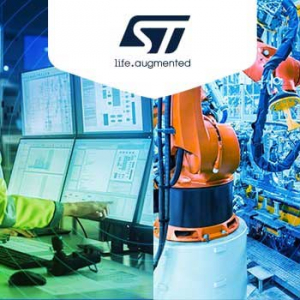
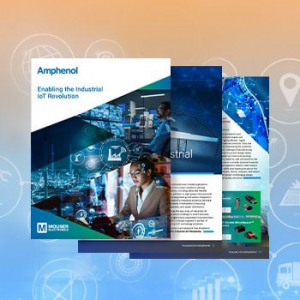
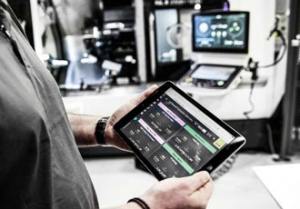
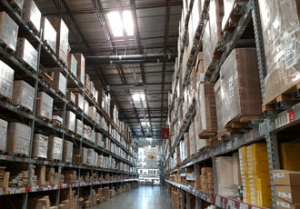







Write a comment
No comments